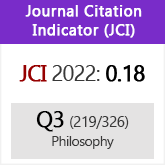Limits to and Licenses for Private Appropriation in the State of Nature According to John Locke
DOI:
https://doi.org/10.3989/isegoria.2019.060.17Keywords:
Theory of Property, John Locke, Charity, Waste, Self-governmentAbstract
This paper studies critically six possible limits to private, individual, unilateral and unequal appropriation in the state of nature described by John Locke. I) The restriction expressed in the form of enough and as good left in common for others; II) the prohibition on wasting perishable goods; III) associated with the second condition but applying to the land, the prohibition on enclosing land whose fruits are perishable; IV) the limitation proposed by Macpherson, according to which mixing one’s own work personally with the object is a condition of appropriation; V) the principle of charity as a right of the needy to the means of subsistence; VI) the limitation which Simmons points out, according to which it is possible to derive from the principal of charity a right to self-government, that is, to not be enslaved in exchange for giving, as is the duty of the property owner to the needy, the means of subsistence.
Downloads
References
Locke, J. (1824), Works of John Locke in Nine Volumes. Londres: Rivington.
Locke, J. (1958), The Reasonableness of Christianity. With A Discourse of Miracles and part ofA Third Letter Concerning Toleration (ed. I. T. Ramsey), London, Adam & Charles Black.
Locke, J. (1965), Essays on the Law of Nature. The Latin Text with a Translation, Introduction and Notes, Together with Transcripts of Locke's Shorthand in his Journal of 1676 (ed. W. Von Leyden), London, Oxford University Press.
Locke, J. (1966), "Sobre el gobierno" [Two Treatises of Government, Book I] en El patriarca en La polémica Filmer-Locke sobre la obediencia política (tr. C. Gutiérrez de Gambra). Madrid: Instituto de estudios políticos, 97-277.
Locke, J. (1977), La racionalidad del cristianismo (trad. L. González Puertas), Madrid, Ediciones Paulinas.
Locke, J. (1990), Segundo Tratado sobre el Gobierno Civil. Un ensayo acerca del verdadero origen, alcance y fin del Gobierno Civil (tr. Carlos Mellizo). Madrid: Tecnos.
Locke, J. (1999), "Carta sobre la tolerancia" en Escritos sobre la tolerancia (trad. L. Prieto Sanchís y J. Betegón Carrillo), Madrid, Centro de estudios políticos y constitucionales, 107-151.
Locke, J. (2002), Political Essays (ed. M. Goldie), Cambridge, Cambridge University Press.
Locke, J. (2003), Political Writings (ed. D. Wootton), Indianapolis/Cambridge, Hackett Publishing Company.
Locke, J. (2004), Two Treatises of Government (tr. Peter Laslett), Cambridge, Cambridge University Press.
Locke, J. (2005), Ensayo sobre el gobierno civil. Un ensayo concerniente al verdadero origen, alcance y finalidad del Gobierno Civil (trad. C. Amor y P. Stafforini), Buenos Aires, Universidad Nacional de Quilmes.
Locke, J. (2007), La Ley de la Naturaleza (tr. Carlos Mellizo). Madrid: Tecnos.
Locke, J. (2011), Ensayo sobre la tolerancia y otros escritos sobre ética y obediencia civil (trad. B. Rodríguez López y D. A. Fernández Peychaux), Madrid, Minerva.
Abdo Ferez, C. (2013), Crimen y sí mismo. La conformación del individuo en la temprana modernidad occidental, Buenos Aires, Gorla.
Boyd, R. R. (2002), "The Calvinist Origins of Lockean Political Economy", History of Political Thought, Vol. 23, N° 1 (Spring), 30-60.
Buckle, S. (1991), Natural Law and the Theory of Property: Grotius to Hume, Oxford, Oxford University Press.
Chumbita, J. S. (2011), "El desplazamiento en la teoría de la propiedad de John Locke: del criterio de necesidad a la teoría del valor para justificar la colonización inglesa en América". en Cuyo: Anuario de filosofía Argentina y Americana, Vol. 28, 93-120.
Chumbita, J. S. (2013a), "Un análisis de las nociones de abundancia y esclavitud para reinterpretar el carácter universal de la teoría de la apropiación de John Locke", en Las torres de Lucca. Revista Internacional de Filosofía Política, N° 2, 69-83.
Chumbita, J. S. (2013b), "Apropiación privada de la tierra y derechos políticos en la obra de John Locke", Ingenium. Revista Electrónica de Pensamiento Moderno y Metodología en Historia de las Ideas, Vol. 7, 193-210. https://doi.org/10.5209/rev_INGE.2013.v7.44075
Chumbita, J. S. (2014a), "La configuración del pueblo en la resistencia. Un abordaje contemporáneo sobre la obra de John Locke", en Revista SAAP, Vol. 8. N° 1, 177-205.
Chumbita, J. S. (2014b), "Teología política, libertad natural, paz relativa y secularización en el estado de naturaleza descrito por John Locke", en Bajo palabra. Revista de filosofía, N° 9, Epoca II, 191-202.
Chumbita, J. S. (2014c), "Actores sociales y económicos en las propuestas jurídicas y normativas de John Locke", Anales del Seminario de Historia de la Filosofía, Vol. 31, N° 1, 89-105.
Chumbita, J. S. (2015a), "La ley de la naturaleza como mandato divino. Continuidades entre los escritos tempranos y de madurez en la obra de John Locke", en Telos. Revista de Estudios Interdisciplinarios en Ciencias Sociales, Vol. 17, N° 1, enero-abril, 129-150.
Chumbita, J. S. (2015b), "La ley de la naturaleza como universal abstracto. Un estudio de los principios morales de John Locke a la luz de su crítica a la idea de sustancia", Éndoxa. Series Filosóficas, Vol. 36, 99-122. https://doi.org/10.5944/endoxa.36.2015.14566
Chumbita, J. S. (2015c), "Las condiciones de posibilidad de la apropiación privada según John Locke. La ley y el estado de naturaleza en los escritos de madurez", Anacronismo e Irrupción, Vol. 9, 79-134.
Chumbita, J. S. (2016a), "La relación entre latitudinarismo, escepticismo, tolerancia y protestantismo en la obra John Locke", Contrastes. Revista Internacional de Filosofía, Vol. 21, N° 1, 63-78.
Chumbita, J. S. (2016b), "La vigencia de la ley en el estado de naturaleza lockeano: libertad, castigo, guerra justa y esclavitud", Signos filosóficos, Vol. 35 (enerojunio), 82-109.
Dang, A.T. (1994), "Fondements des politiques de la pauvreté: notes sur «The Reporto n the Poor» de John Locke, Revue économique, Vol. 45, N° 6, 1423-1442. https://doi.org/10.3406/reco.1994.409617
Dunn, J. (1968), "Justice and the Interpretation of Locke's Political Theory", Political Studies, Vol. 16, N° 1, 68-87. https://doi.org/10.1111/j.1467-9248.1968.tb01444.x
Dunn, J. (1969), The political thought of John Locke. An historical account of the argument of the "Two Treatises of government". Cambridge: Cambridge University Press.
Dunn, J. (2005), "What History Can Show: Jeremy Waldron's Reading of Locke's Christian Politics", The Review of Politics, Vol. 67, N° 3 (Summer), 433-450. https://doi.org/10.1017/S0034670500034653
Hobbes, T. (1999), Leviatán (trad. C. Mellizo). Buenos Aires, Alianza Editorial.
Horne, T. (1990), Property Rights and Poverty: Political Argument in Britain, 1605-1834, Chapel Hill, University of North Carolina Press.
Ince, O. U. (2011), "Enclosing in God's Name, Accumulating for Mankind: Money, Morality and Accumulation in John Locke's Theory of Property", The Review of Politics, Vol. 73, 29-54. https://doi.org/10.1017/S0034670510000859
Kelly, P. H. (1988), "«All things richly to enjoy»: Economics and Politics in Locke's Two Treatises of Government", Political Studies, Vol. 36, N° 2, 273-293. https://doi.org/10.1111/j.1467-9248.1988.tb00229.x
Lamb, R. (2009), "The Meaning of Charity in Locke's Political Thought", European Journal of Political Theory, Vol. 8, N° 2 (April), 229-252. https://doi.org/10.1177/1474885108100854
Lamprecht, S. P. (1918), The moral and Political Philosophy of John Locke, New York, Columbia University Press.
Lea, D. (1994), "Lockean Property Rights, Tully's Community Ownership, and Melanesian Customary Communal Ownership", Journal of Social Philosophy, Vol. 25, N° 1 (Spring), 117-132. https://doi.org/10.1111/j.1467-9833.1994.tb00309.x
Lebovics, H. (1986), "The Use of America in Locke's Second Treatise of Government", Journal of the History of Ideas, Vol. 47, N° 4 (October - December), 567-581. https://doi.org/10.2307/2709718
Macpherson, C. B. (1970), La teoría política del individualismo posesivo. De Hobbes a Locke (Tr. J.-R. Capella). Barcelona: Fontanella.
Marshall, J. (1994), John Locke. Resistance, Religion and Responsibility, Cambridge, Cambridge University Press. https://doi.org/10.1017/CBO9780511598531
Michael, M. A. (1998), "Locke's Second Treatise and the Literature of Colonization", Interpretation. A Journal of Political Philosophy, Vol. 25, N° 3 (Spring), 407-427.
Olivecrona, K. (1974a), "Appropriation in the State of Nature: Locke on the Origin of Property", Journal of the History of Ideas, Vol. 35, 211-230. https://doi.org/10.2307/2708759
Olivecrona, K. (1974b), "Locke's Theory of Appropriation", The Philosophical Quarterly, Vol. 24, N°. 96, Julio, 220-234. https://doi.org/10.2307/2217935
Poole, R. (1980), "Locke and the Bourgeois State", Political Studies, Vol. 28, N° 2, 222-237. https://doi.org/10.1111/j.1467-9248.1980.tb01247.x
Simmons, A. J. (1992), The Lockean Theory of Rights. Princenton: Princenton University Press.
Sreenivasan, G. (1995), The Limits of Lockean Rights in Property, New York, Oxford University Press.
Strauss, L. (1988), What is political philosophy? And other studies, Chicago University Press, Chicago.
Strauss, L. (1992), Natural Right and History, Chicago, Chicago University Press.
Tully, J. (1980), A discourse on Property: John Locke and his Adversaries, Cambridge, Cambridge University Press. https://doi.org/10.1017/CBO9780511558641
Tully, J. (1993), An approach to political philosophy: Locke in contexts, Cambridge, Cambridge University Press.
Vaughan, S. (2002), "Virtue, Capitalism, and Public Aid: Classical Liberalism and the Poor", Western Political Science Association Conference, Long Beach, CA (March), 1-23.
Waldron, J. (1979), "Enough and as Good Left for Others", Philosophical Quarterly, Vol. 29, 319-328. https://doi.org/10.2307/2219447
Waldron, J. (1984), "Locke, Tully and the Regulation of Property", Political Studies, Vol. 32, 98-106. https://doi.org/10.1111/j.1467-9248.1984.tb00168.x
Waldron, J. (2002), God, Locke and Equality: Christian Foundations in Locke's Political Thougth, Cambridge, Cambridge University Press. https://doi.org/10.1017/CBO9780511613920
Waldron, J. (2005), "Response to Critics", The Review of Politics, Vol. 67, N° 3 (Summer), 495-513. https://doi.org/10.1017/S0034670500034689
Widerquist, K. (2010), "Lockean Theory of Property: Justification for Unilateral Appropriation", Public Reason, vol. 2, N° 1, 3-26.
Downloads
Published
How to Cite
Issue
Section
License
Copyright (c) 2019 Consejo Superior de Investigaciones Científicas (CSIC)

This work is licensed under a Creative Commons Attribution 4.0 International License.
© CSIC. Manuscripts published in both the printed and online versions of this Journal are the property of Consejo Superior de Investigaciones Científicas, and quoting this source is a requirement for any partial or full reproduction.All contents of this electronic edition, except where otherwise noted, are distributed under a “Creative Commons Attribution 4.0 International” (CC BY 4.0) License. You may read here the basic information and the legal text of the license. The indication of the CC BY 4.0 License must be expressly stated in this way when necessary.
Self-archiving in repositories, personal webpages or similar, of any version other than the published by the Editor, is not allowed.














